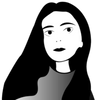A Conversation with Herb Simon
One of my early introductions to Herb Simon.
Pointer from: CMU Archives: Herbert Simon Collection
Place digested: My kitchen, listening along and doing dishes
Time digested: April 8, 2018
Source: “A Conversation with Herb Simon” Interview by Julia Love
http://doi.library.cmu.edu/10.1184/pmc/simon/box00000/fld00000/bdl0000/doc0001
Use new tools to answer old questions
- example: galileo to exploit a new situation; took microscope to create telescope and used it to study heavens. took new tool and applied it to old subject (astronomy). only galileo had the idea to exploit the new situation.
- look in situation what is new, maybe you can exploit this circumstance as new opportunity
- Exploring is the name of the game
- Good student = curiosity. dedicated to ways of improving your curiosity
- None of these decisions (e.g. undergrad major) are fixed decisions, that you’re committed to. If look at career most people, have done lots of things.
- because due to the particular background / training i have, i know somethings about this most people in this field don’t know. personally has exploited by wandering around in different disciplines. walk into a discipline, have to learn about that, but have some things have learned about in another discipline that other people don’t know about. That’s a great secret weapon.
What’s the thread?
Have been academic my whole life, but in a new field every 10 years! That’s really a spoof. All these fields really study the same thing: How humans…
- think
- solve problems
- make decisions
That’s study you can study every day, even while you’re walking
What is an expert?
- Start by picking something you like to do. Then devote a good part of your days/nights to gaining skills, broad skills of the kind you need. Extremely helpful to have some guidance, too. embed self in system where can be surrounded by people to learn from. Surround self with other experts / people to learn from.
- Great secret weapon: bringing skills / understanding from one field to another, where they don’t have any particular knowledge
Simon’s secret weapon
- Different things at different times. one was study did as undergraduate— how people made budgetary decisions, but department was made by engineers + education people. the teachers wanted to hire rec leaders and engineers wanted to plant the tree. understood that phenomenon that lead him to decision making research. secret weapon was: hadn’t had head so filled with economic theory that couldn’t actually see what was happening in world when encountered it. so could see how decisions actually made in real situations, vs the THEORY of how something “must” happen.
- In the case of computers, just because was curious / had experience in punch cards for statistical purposes; when news began to come out just after WWII of strange new things called computers, excited curiosity, so learned about it. so could be sensitive about how could use computers in psychology before other people could.
What is parallel processing?
- Persistent issue in studying human thinking– is human thinking one thing at a time in a series of steps? or are they doing things in parallel? [what would D Kahneman say about this?… at least for “system 2” things that require awareness]
- Architecture of human thinking
- Intuition often gets confused with actually attention fixation (example: mutilated checker board)
